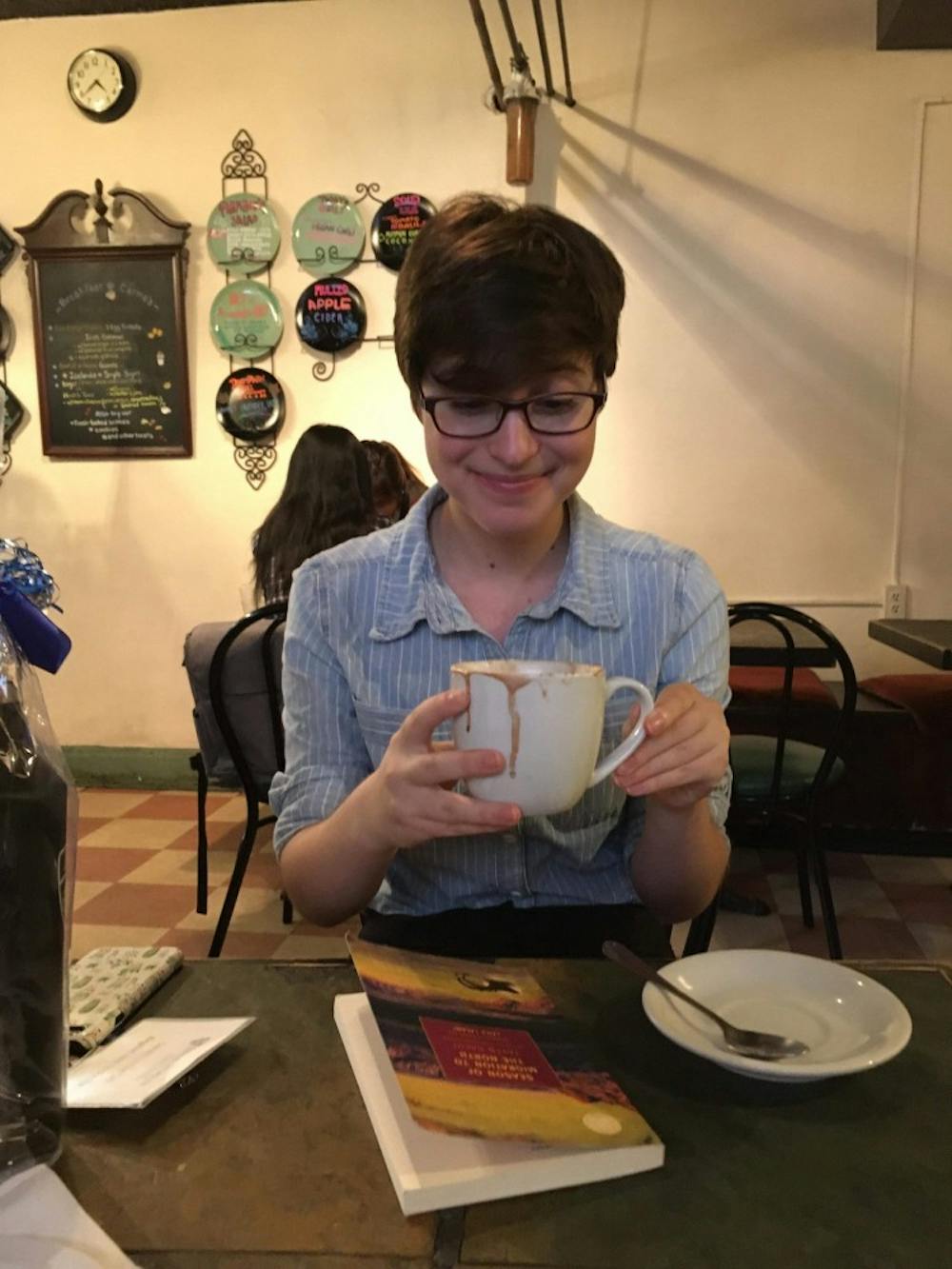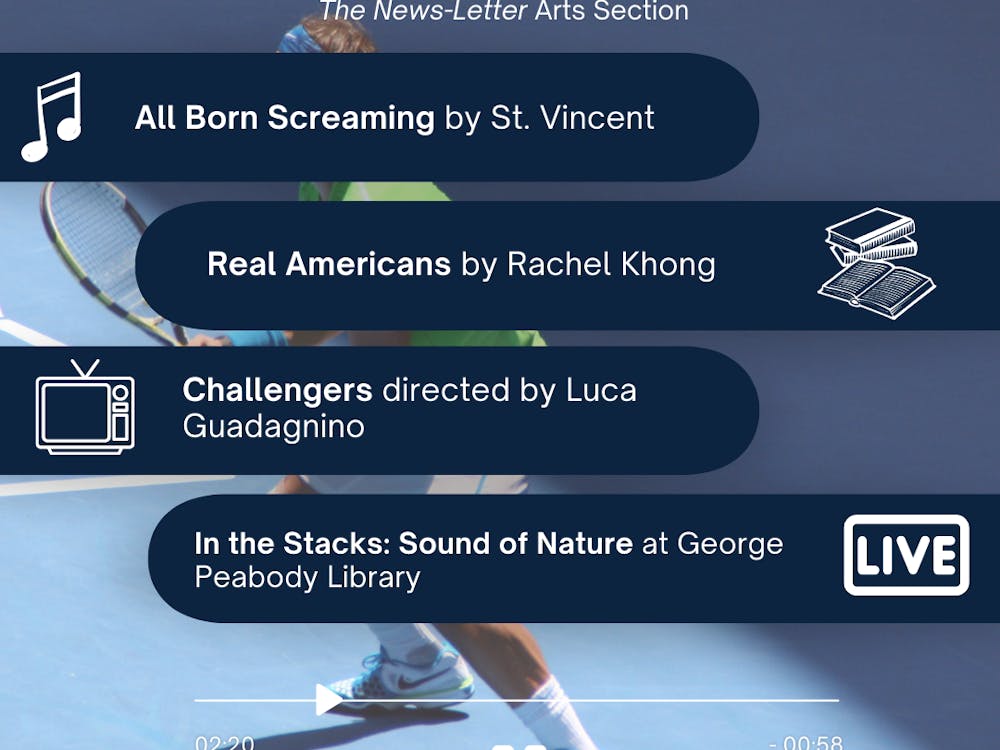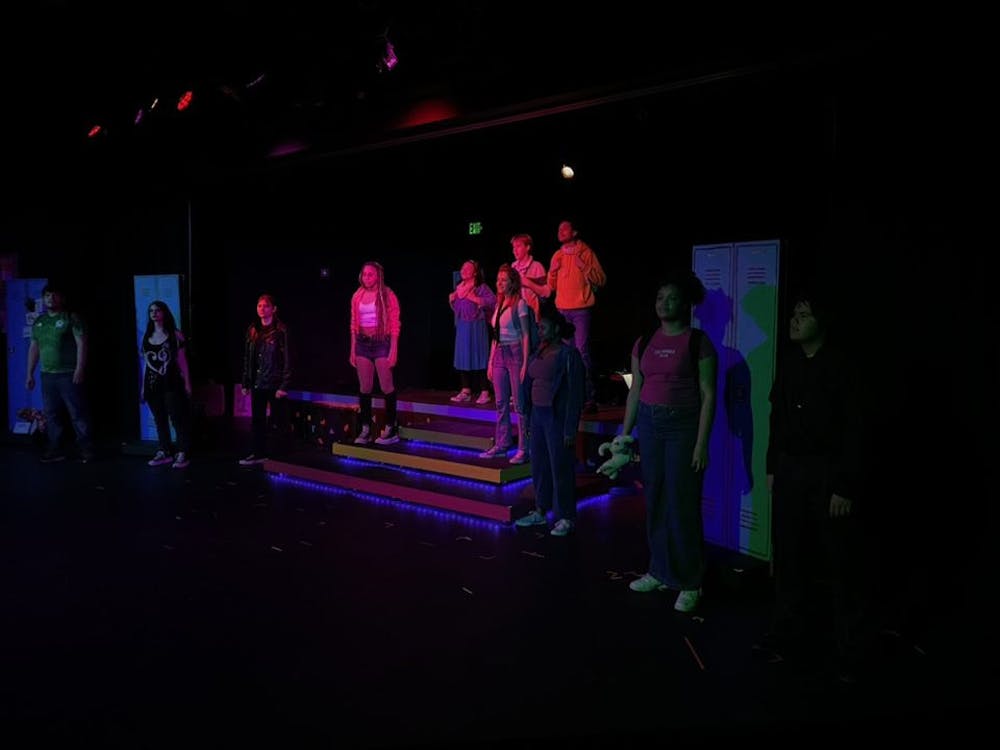I’ve covered the past three Witness Theater showcases for The News-Letter, and I’m honestly not sure why. I never feel like I’m doing their astonishingly complex plays justice, yet I keep volunteering to review them.
On each opening night I have the opportunity to interview students who were involved with the production: actors, playwrights, directors and stage technicians — as well as senior Charlie Linton, who has served as Witness’ executive producer since last year.
Earlier this month, he told me that of the three Fall Showcases he’s worked on, he was most proud of this year’s. It was four out of 11 cast members’ first time doing Witness, he said, and three of the four playwrights were women. Two were people of color.
“That is incredibly important to me, and if you look at statistics across American theater, what’s being produced out there does not look like that,” he said. “It’s mostly white men.”
Charlie continued to explain how art can function not only as a means of creative self-expression but also as a form of political discourse, which manifests both in a piece’s content and its circumstances of production. (There’s a difference, Charlie later noted, between a gay playwright’s readapting a graphic novel by Alison Bechdel, a famous lesbian cartoonist, into Fun Home and a well-established straight playwright’s making a show about gay people just to “be political ‘cause it’s hip now.’”)
He argued that art has a capacity that conventional politicians and angry Twitter users lack: to react to and interpret current events. But this ability is weakened, he warned, if art isn’t open to everyone.
Feeling like our conversations were only scratching the surface, I asked Charlie if we could speak further. A week later, as we sat amid a pile of leaves on Keyser Quad, I asked him a question a college interviewer had used on me: “With which celebrity would you switch lives?”
“Oh, I wouldn’t,” he said, without missing a beat. “I hate attention.”
Indeed, since transferring here from a small liberal arts college him sophomore fall, Charlie has always done behind-the-scenes work for Hopkins student theater.
He doesn’t think he’d be very good at acting, but I think it’s about time he gets a spotlight, if only metaphorically.
Because Charlie has done stage managing and production for both Witness and Barnstormers, I inquired about the legacy he will have left on theater here once he graduates this spring.
“Gosh, that’s such a loaded question,” he said. “It’s a little conceited of me to be like ‘I changed all of this stuff.’”
Although Charlie isn’t a fan of structure, he values logistics; he’s increased Witness’s organization by implementing handbooks and systems for training new members.
He’s also helped bridge the divide between Witness, which used to be perceived as more of a chill and chaotic group, and the Barnstormers, which used to be perceived as more legit and professional. Although he acknowledged the groups’ different missions, he and the Barnstormers’ producers have strategized to make Hopkins theater more welcoming for all students, regardless of their previous background and experience.
“I personally never want someone to feel like they cannot participate here in theater to its fullest extent,” he said.
Outside of the Hopkins bubble, Charlie is producing an original one-act play with Present Tense Theatre Company to be performed at the Charm City Fringe Festival. The group’s purpose (or “ethos,” as Charlie put it) is to develop new works, particularly those that aren’t included in American theater’s mainstream narrative.
I’m uncultured, so I asked Charlie to define “ethos” for me.
“It’s consciousness of your mission with an art piece and awareness of how you are going to accomplish that,” he said. “What are your parameters, and how are you thinking about that and operationalizing? Because you can say ‘I want to be inclusive’ but then hire an entirely white production team that went to wealthy private schools and wants to do Hairspray with all white people.”
(Read: his high school theater, which he refused to join.)
Charlie admitted, however, that he isn’t very sentimental about art, though he values pieces that are meaningful for their creators and the individuals for whom they are produced. Notwithstanding certain works of art to which people reacted powerfully, he doesn’t think art has the potential to change the world (“You can’t empirically prove that!”).
I was temporarily distraught, but Charlie luckily went on to describe how art allows people to analyze their own and others’ experiences, citing how numerous acquaintances reached out to him to thank him for writing Lift and Drag, which depicted two estranged siblings’ reunion and was performed in last year’s Intersession Showcase.
“Something about the play made them want to connect with me over that,” he said.
Witness has vast creative jurisdiction over its shows because it doesn’t hire outside directors. Charlie mentioned, though, that the administration has never objected to the content of Witness productions — of which, he observed, many students are only “peripherally aware.”
“Sometimes I wonder what it would look like if the University had more of an interest in controlling the type of art that is being produced here,” he wondered.
“Say something insightful about arts and humanities at Hopkins,” I countered.
He giggled but didn’t bat an eye.
“I think arts for sure could be funded, and it’s not just the funding; it’s better facilities,” he said.
Indeed, all theater groups are forced to share one “proper theater”; every other performance is confined to a classroom in need of technical improvements.
“If Hopkins is serious about wanting to develop as a school with a stronger arts base,” he added, “There needs to be more spaces in which to create art that aren’t shared with a hundred other things and that get co-opted by whoever’s organizing Alumni Weekend.”
Charlie conceded that there’s support for the humanities, but that you “have to forge your own path” to find it. He had no guidance while applying for research grants for his sociology research project, which entails interviewing independent bookstore owners in the Pacific Northwest about how technology has affected their businesses. He wishes the administration would better advertise such opportunities for humanities undergraduates.
(Fun fact: His English thesis is about how cyberpunk novels from the 70s and 80s counterintuitively reflect economic conservatism. Also, Charlie worried about sounding “braggy” when he told me this, but he makes it a point to read 100 books per year.)
He also hopes to increase workshop availability to playwrights by involving more board members in the process and to continue working with community theater in the future, though he is not sure how theater will fit into his career in academia as an English professor.
Regardless, theater has prepared Charlie for post-grad life. Having to juggle multiple moving parts as a producer has helped develop his crisis management skills. He also seems to suggest that theater can be at least a dim beacon in today’s dark political age. Remember that you don’t have to be an actor to participate; according to Charlie, there are multiple engineers on build crew.
No, theater might not be able to break the fourth wall and suddenly evict the hand, foot and mouth disease outbreak from our campus or Brett Kavanaugh from Capitol Hill, but it is still worthwhile to see a show. Try it sometime.























Please note All comments are eligible for publication in The News-Letter.